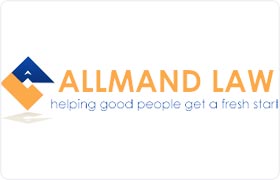 Mesquite Reorganization Lawyers, Texas
Mesquite Reorganization Lawyers, Texas
Sponsored Law Firm
-
 x
x

Click For More Info:
-
Allmand Law Firm
4849 Greenville Ave Ste 230 Dallas, TX 75206» view mapBankruptcy Helping Good People Get a Fresh Start
At Allmand Law Firm, PLLC, our goal is to help each of our clients pursue a fresh start and the second chance they need to start again.
800-828-7421
Lawyers
1-3 of 3 matches
Business Organization, Estate Planning, Securities, Reorganization, Immigration



 Weldon Allman Dallas, TX
Weldon Allman Dallas, TX AboutAllmand Law Firm
AboutAllmand Law Firm Practice AreasExpertise
Practice AreasExpertise